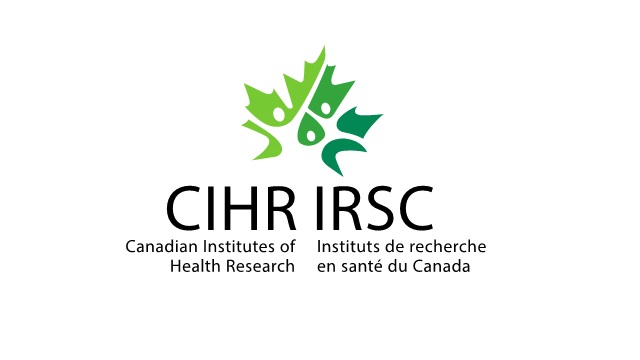
The latest round of funding from the Canadian Institutes of Health Research's Project Grant: Spring 2019 program was recently announced, and researchers from the Faculty of Medicine & Dentistry made an impressive showing, receiving 16 of the U of A's 20 grants. In total, the 20 U of A projects received more than $18 million from the competition.
The Project Grant program is designed to capture ideas with the greatest potential to advance health-related fundamental or applied knowledge, health research, health care, health systems, and/or health outcomes. This year, the spring 2019 CIHR Project Grant program approved funding for more than 380 projects across Canada (45 in Alberta) for a total of $275 million.
Two of FoMD's institutes were particularly well-represented this year, with the Women and Children's Health Research Institute (WCHRI) and the Neuroscience and Mental Health Institute (NMHI) both seeing 10 members receive grant funding (note that some researchers may be members of both institutes).
"We are extremely proud of the successes of all of our NMHI researchers," director of NMHI Douglas Zochodne said. "This CIHR funding represents an infusion of over $9 million that will support discovery in neuroscience and mental health research. This unprecedented level of success shows that our researchers are driving neuroscience forward with fundamental insights and translational research to improve the quality of life for those living with devastating conditions."
"We are thrilled with the success of our members, whose research is essential for improving health outcomes," executive director of WCHRI Sandra Davidge said. "Four of our members leveraged WCHRI's bridge funding program as a mechanism to maintain momentum of their research-this kind of institutional investment is critical and would not have been achieved without the generous support of our funding partners."
FoMD's CIHR Project Grant program awardees
Development of a novel universal (cross-protective) vaccine technology for influenza viruses
Principal Investigator: Babita Agrawal, professor in the Department of Surgery, and member of Women and Children's Health Research Institute and the Alberta Diabetes Institute.
Calcium Sensing Receptor (CaSR) Signaling in the Thick Ascending Limb (TAL): Delineating the Pathways Perturbed in Kidney Stone Formers
Principal Investigator: R. Todd Alexander, associate professor in the Department of Pediatrics, and member of the Women and Children's Health Research Institute.
Role of extrasynaptic GABA in the recovery of motor function after spinal cord injury
Principal Investigators: David Bennett, Keith Fenrich, Karim Fouad, and Monica Gorassini, professor in the Department of Biomedical Engineering, director of the Sensorimotor Rehabilitation Neuroscience group, and member of the Women and Children's Health Research Institute and Neuroscience and Mental Health Institute.
Cryobiology and Cryopreservation of Corneal Endothelial Monolayers
Principal Investigators: Janet Elliott, professor in the Department of Laboratory Medicine and Pathology, and Locksley Mcgann.
Defining novel roles for the Bcl-2 family member BAD in mammary epithelial cell biology
Principal Investigator: Ing Swie Goping, associate professor in the Department of Biochemistry, and member of the Women and Children's Health Research Institute and the Cancer Research Institute of Northern Alberta.
Identification of a novel population of intrinsically oscillating spinal neurons and assessment of their role in locomotor rhythm generation
Principal Investigator: Simon Gosgnach, associate professor in the Department of Physiology, and member of the Women and Children's Health Research Institute and the Neuroscience and Mental Health Institute.
Ciliary Pathways in Neurogenetic Disease
Principal Investigator: Ordan Lehmann, professor in the Department of Ophthalmology, and member of the Women and Children's Health Research Institute and the Neuroscience and Mental Health Institute.
Receptor binding and Kinase Signalling regulate Respiratory Syncytial Virus Replication and Provide New Therapeutic Opportunities
Principal Investigator: David Marchant, associate professor in the Department of Medical Microbiology & Immunology, and member of the Women and Children's Health Research Institute and the Neuroscience and Li Ka Shing Institute of Virology.
Patterned Activation of the Arms and Legs to Improve Walking after Neural Injuries
Principal Investigator: Vivian Mushahwar, professor in the Department of Medicine, and member of the Neuroscience and Mental Health Institute.
Prevention of preterm birth (PTB) and fetal inflammation (FI): the pharmacology and toxicology of targeting interleukin (IL)6 with HSJ633, a small peptide allosteric IL6 receptor antagonist
Principal Investigator: David Olson, professor in the Department of Obstetrics and Gynecology and member of the Women and Children's Health Research Institute.
Role of microglia during remyelination
Principal Investigator: Jason Plemel, assistant professor in the Department of Medicine, and member of the Neuroscience and Mental Health Institute.
Lentivirus persistence in the brain: viral, host and therapeutic determinants
Principal Investigator: Christopher Power, vice-dean of Research, and member of the Women and Children's Health Research Institute and the Neuroscience and Mental Health Institute.
Mechanisms and control of CD36-Fyn signal transduction by plasma membrane organization during anti-angiogenic response
Principal Investigator: Nicolas Touret, associate professor in the Department of Biochemistry and member of the Cancer Research Institute of Northern Alberta.
The role of fractalkine signalling during remyelination
Principal Investigator: Anastassia Voronova, assistant professor in the Department of Medical Genetics and member of the Women and Children's Health Research Institute and the Neuroscience and Mental Health Institute.
Molecular switch function in a prion protein; control of pathways leading to pathogenesis or disease remediation
Principal Investigator: David Westaway, professor in the Department of Medicine, director of the Centre for Prions & Protein Folding Diseases, and member of the Neuroscience and Mental Health Institute.
Modulation of spontaneous and rehabilitation-induced recovery after stroke by pleiotrophin
Principal Investigator: Ian Winship, associate professor in the Department of Psychiatry, and member of the Neuroscience and Mental Health Institute.